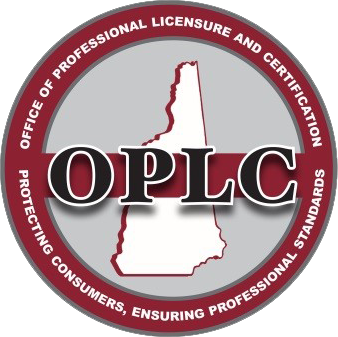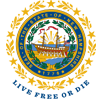Speech Language Pathology Governing Board FAQs
Below are some of the most frequently asked questions regarding speech-language pathology received by the New Hampshire Office of Allied Health Professionals.
- What is Speech-Language Pathology?
- What is a Speech-Language Pathologist?
- What are licensure qualifications?
- How does the Board monitor competency of Speech-Language Pathology licensees?
- When should I contact the Board?
- Is there a requirement to hold a New Hampshire license to do the Clinical Fellowship Year (CFY)?
- What work settings accept New Hampshire licensure?
- Who can supervise a Speech-Language Assistant?
- What is Speech-Language Pathology?
-
Speech-Language Pathology is the practice of identifying, diagnosing and treating individuals who have communication disorders. These may include disorders of speech, articulation, fluency, voice, verbal and written language, comprehension, cognition, swallowing and alternative/augmentative communication.
- What is a Speech-Language Pathologist?
-
A speech-language pathologist is a highly educated and skilled professional who is licensed to practice speech/language pathology in New Hampshire. A Speech-Language Pathologist screens, evaluates, diagnoses, treats and consults on disorders of communication.
- What are licensure qualifications?
-
Licensure qualifications are as follows:
- Successful completion of approved academic and clinical requirements.
- Passing a national certification exam.
- How does the Board monitor competency of Speech-Language Pathology licensees?
-
The Practice Act (RSA 326-F) requires that every licensee participate in continuing education in the professional field, relating to development of the purpose of updating and developing skills in order to provide appropriate speech-language pathology services. It is the Board's responsibility to monitor compliance with the requirement of the law.
- When should I contact the Board?
-
You should contact the Board:
- To determine whether the practitioner holds a current license.
- To report unprofessional conduct or practice.
- To register a complaint or express dissatisfaction with services received.
- To determine if any disciplinary action has been taken against a licensee.
- To request information about speech-language services.
- Is there a requirement to hold a New Hampshire license to do the Clinical Fellowship Year (CFY)?
-
Yes. One must apply for a Provisional License to work under supervision. Upon completion of the CFY, a Post Graduate Professional Experience (PGPE) report is submitted to the Governing Board for review. If the PGPE report is not completed in accordance with New Hampshire requirements, it will delay licensure. Upon approval of the PGPE, the file is complete. The application then is presented to the Governing Board for a final review for approval of a full-unrestricted initial New Hampshire license.
- What work settings accept New Hampshire licensure?
-
Private practice, clinics, hospitals, public and private schools, and community agencies.
- Who can supervise a Speech-Language Assistant?
-
Spe 607.01(a) states: "A speech-language assistant shall receive direction from, and be supervised by, an individual holding a currently valid New Hampshire license to practice speech-language Pathology." This means in all settings including but not limited to the school setting.




